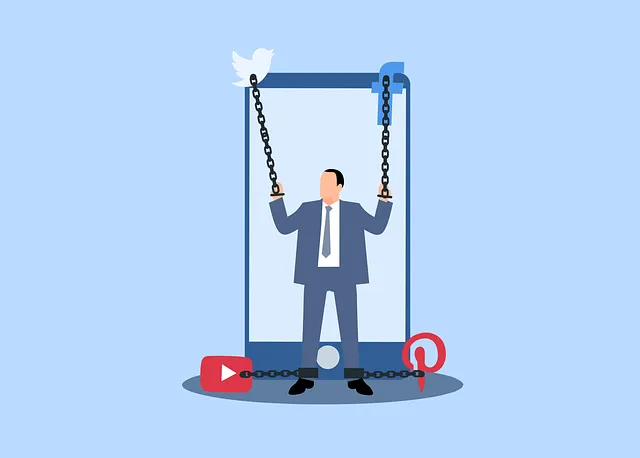Healthcare provider burnout is a significant concern within Kaiser's inpatient mental health services in Aurora, driven by high patient loads, long hours, administrative tasks, and limited resources. This leads to decreased performance, increased errors, and negative impacts on both individual well-being and patient care. To combat this, Kaiser has implemented comprehensive support, including dedicated facilities, public awareness campaigns, community outreach programs, and structured programs for Depression Prevention. Additionally, they emphasize work-life balance strategies like adequate staffing and access to coping skills resources. These innovative approaches have made Kaiser a model for other institutions, significantly improving the well-being of healthcare professionals in busy settings like Aurora's inpatient mental health facilities.
Healthcare provider burnout is a growing concern, impacting patient care and facility operations. This article explores comprehensive strategies to prevent burnout among healthcare staff, focusing on evidence-based approaches and sustainable work environments. We delve into the causes and consequences of burnout, particularly within inpatient settings, using Kaiser’s innovative model in Aurora as a case study. Additionally, we provide practical guides for medical facilities aiming to create resilient work cultures. Understanding and addressing burnout is crucial for maintaining high-quality healthcare services.
- Understanding Burnout Among Healthcare Providers: Causes and Impact
- Kaiser's Approach to Inpatient Mental Health Support in Aurora
- Evidence-Based Strategies for Burnout Prevention in Healthcare Settings
- Creating a Sustainable Work Environment: A Comprehensive Guide for Medical Facilities
Understanding Burnout Among Healthcare Providers: Causes and Impact

Healthcare provider burnout is a growing concern within the industry, particularly in areas like Kaiser’s inpatient mental health services in Aurora. Burnout occurs when providers experience prolonged periods of high stress and emotional exhaustion, leading to reduced performance and increased risk of errors. Several factors contribute to this issue. High patient loads, long working hours, administrative tasks, and limited resources can all take a toll on healthcare professionals’ well-being.
The impact of burnout is significant. It not only affects the individual’s mental health but also has consequences for patient care. Burnout may lead to decreased empathy, impaired decision-making, and increased rates of medical errors. Understanding these causes is crucial to implementing effective burnout prevention strategies for healthcare providers, such as integrating stress reduction methods and crisis intervention guidance. Organizations like Kaiser should prioritize these measures to ensure the well-being of their staff and maintain high-quality patient care.
Kaiser's Approach to Inpatient Mental Health Support in Aurora

Kaiser in Aurora has pioneered innovative strategies to combat burnout among healthcare providers, with a particular focus on inpatient mental health support. Their comprehensive approach involves dedicated facilities for mental health care within their hospitals, ensuring easy access and reducing stigma. This strategy aims to provide immediate relief and long-term solutions to stress and anxiety, common issues faced by medical professionals.
One notable initiative is the development of public awareness campaigns that educate both healthcare workers and the community on mental health management techniques. Additionally, they have implemented community outreach programs that foster open conversations about mood disorders, encouraging early intervention and prevention. These efforts have significantly contributed to improving overall well-being in the healthcare sector, making Kaiser’s practices a model for other institutions seeking effective burnout prevention strategies in inpatient mental health settings.
Evidence-Based Strategies for Burnout Prevention in Healthcare Settings

In healthcare settings, burnout prevention is a critical aspect of ensuring both provider well-being and patient care quality. Organizations like Kaiser in Aurora, with their extensive inpatient mental health services, can play a pivotal role in implementing evidence-based strategies to combat burnout. These strategies encompass a multi-faceted approach that includes structured programs for Depression Prevention, which has been shown to be effective in reducing symptoms and improving resilience among healthcare workers.
The Mind Over Matter Principles form the foundation of many successful interventions. By fostering mental agility and emotional intelligence, these principles equip providers with tools to manage stress more effectively. Additionally, incorporating Stress Management techniques into daily routines allows healthcare professionals to maintain a healthy work-life balance, thereby reducing the risk of burnout. Such practices are not only beneficial for individual providers but also contribute to a more sustainable and resilient healthcare system as a whole.
Creating a Sustainable Work Environment: A Comprehensive Guide for Medical Facilities

Creating a sustainable work environment is paramount for mitigating healthcare provider burnout, especially in bustling medical facilities like those managed by Kaiser in Aurora. To foster a resilient culture, Kaiser should prioritize implementing comprehensive strategies that promote work-life balance and employee well-being. This involves ensuring adequate staffing levels to reduce excessive workloads and providing access to resources for coping skills development and stress management.
By incorporating mind over matter principles and confidence-boosting initiatives, Kaiser can empower its medical staff to handle the demands of inpatient mental health care more effectively. These efforts should be supported by regular feedback mechanisms, clear communication channels, and opportunities for professional growth and recognition. Together, these measures will create a supportive environment that not only prevents burnout but also enhances job satisfaction among healthcare providers.
Healthcare provider burnout is a growing concern, with significant impacts on patient care and facility operations. However, strategies like those employed by Kaiser in its inpatient mental health support in Aurora offer promising solutions. By understanding the causes and effects of burnout, implementing evidence-based practices, and creating sustainable work environments, medical facilities can effectively prevent burnout among their providers. Adopting comprehensive guides and learning from innovative models such as Kaiser’s approach can lead to improved healthcare outcomes and a happier, more resilient workforce.






